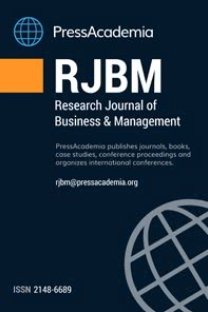GUANXI VS TALENT ACQUISITION: EVALUATING THE EFFECTS OF GUANXI REFERRALS IN SINO-FOREIGN COLLEGES
Purpose- The objective of the research is to investigate how teaching quality, courses delivered and their learning outcomes, student and staff satisfaction are affected when guanxi and non-guanxi based staffs share the same class cohort and subject levels in the selected colleges for this study. The aim of the research is to show the implications, using a primary data inspected, thematically analysed findings of how these differences in quality control, lack of transparency in hiring and pay packages of guanxi and non-guanxi based recruited staff members affect Chinese and non-Chinese staff expectations and also overall image of foreign Universities who partner with colleges in mainland China.
Methodology- The primary data is collected from interviews with a) candidates who have been hired through guanxi referrals, b) candidates who have been recruited in conventional ways with no social-ties benefitting their hiring or position, c) learners from three foreign University-partnered colleges in China. Considering the aim, the research strategy was adopted within a qualitative study research design that has applied a thematic analysis.
Findings- The investigation compares faculties who were hired on Guanxi-basis and those who were not, and elucidates on a) A mismatch of staff expertise, courses delivered and learning outcomes, b) Absence of platform to share ‘best practices’, c) Lack of multi-cultural learning ecosystems in staff rooms, d) Missed learning objectives and teacher-student office hours, and e) Varying financial and moral incentives
Conclusion- There are clear challenges coming from guanxi-led hired staff not working closely with non-guanxi counterparts (even when they are teaching on the same course), the lack of access of staff profiles and inability of non-guanxi staff to communicate with guanxi-based staffs. The effects on the wider scale falls on student learning, image of foreign Universities, very high staff attrition rate, quality control measures and falling reputation of these colleges nationally within mainland China.
Keywords:
Guanxi, China, higher education, academic recruitment, university partnerships, learning outcomes Sino-Foreign collaboration institutions,
___
- Abosag, I., &Naudé, P. (2014). Development of special forms of B2B relationships: Examining the role of interpersonal liking in developing Guanxi and Et-Moone relationships. Industrial Marketing Management, 43 (6): 887-896
- Alston, J.P (1989). Wa, guanxi, and inhwa: Managerial principles in Japan, China and Korea. Business Horizons. 32(2): 26-31
- Ambler, T. Styles, C., & Xiucun, W. (1999). The effect of channel relationships and guanxi on the performance of inter-province export ventures in the. People’s Republic of China. International Journal of Research in Marketing, 16(1): 75-87
- Braun, V. & Clarke, V. (2006). Using thematic analysis in psychology. Qualitative Research in Psychology, 3 (2): 77-101.
- Boyatzis R. (1998). Transforming Qualitative Information: Thematic and Code Development. Thousand Oaks, CA: Sage Publications; 1998
- Cai, S., Jun, M., & Yang, X. (2010). Implementing supply chain information integration in China: The role of institutional forces and trust. Journal of Operations Management, 28(3): 257-268
- Chen, Y., Friedman, R., Yu, E., & Sun, F. (2011). Examining the Positive and Negative Effects of Guanxi Practices. SSRN Electronic Journal, (28): 715- 735.
- Cheung, M., Wu, W., & Wong, M. (2013). Supervisor-subordinate kankei, job satisfaction and work outcomes in Japanese firms. International Journal of Cross-Cultural Management, 13(3): 265-278
- Crabtree. B., Miller, W. (1999). Doing Qualitative Research. 2. Newbury Park, CA: Sage Publications
- Dana, L. P., & Dana, T. E. (2005). Expanding the scope of methodologies used in entrepreneurship research. International Journal of Entrepreneurship & Small Business, 2(1): 79-88.
- Dana, L. P., & Dumez, H. (2015). Qualitative research revisited: epistemology of a comprehensive approach. International Journal of Entrepreneurship and Small Business, 26(2): 154-170.
- Davies, H., Leung, T.K., Luk, S.T., & Wong, Y.H. (1995). The benefits of ‘Guanxi’: The value of relationships in developing the Chinese market. Industrial Marketing Management, 24 (3): 207-214.
- Daly, J., Kellehear, A. & Gliksman, M. (1997). The Public Health Researcher: A Methodological Approach. Australia: Oxford University Press.
- Dunning, John H. and Changsu Kim. “The Cultural Roots of Guanxi: An Exploratory Study.” The World Economy. Vol 30 no. 2. Oxford, 2007
- Eisenhardt, K.M. (1989). Building Theories from Case Study Research The Academy of Management Review; 14 (4)
- Fock, H. K. Y., & Shing, W. (2003). The China Market: strategic implications of guanxi. Business Strategy Review 9(3): 33-43
- Gu, Flora F., Hung, Kineta H., Tse, David K. (2008). When Does Guanxi Matter? Issues of capitalization and its dark sides. Journal of Marketing 72(4):12-28
- ICAC (1993), Hong Kong investors rely on guanxi to do business in China. Oriental Daily News
- Nguyen, B., Simkin, L., & Canhoto, A. (2015).The dark side of CRM. London: Routledge.
- Rice, P., & Ezzy, D. (1999). Qualitative research methods: A health focus. Melbourne: Oxford University Press.
- Simmons, L.C. and Munch, J. (1996). Is relationship marketing culturally bound: a look at guanxi in China. Advances in Consumer Research 23: 92-96
- Scott, J., Harrison, R., Hussain, J., &Millman, C. (2014). The role of Guanxi networks in the performance of women-led firms in China. Internatinal Journal of Gender And Entrepreneurship, 6(1): 68-82.
- Tsang, E. (1998). Can guanxi be a source of sustained competitive advantage for doing business in China? The Academy of Management. Executive, 12 (2): 64-73
- Wong, Y., Wong, S., & Wong, Y. (2010).A study of subordinate–supervisor Guanxi in Chinese joint ventures. The International Journal Of Human Resource Management, 21(12): 2142-2155.
- Yang, M. M. H. (1994). Gifts, favors and banquets: The art of social relationships in China. Cornell, NY: Cornell University Press
- Zhai, Q., Lindorff, M., Copper, B. (2013). Workplace Guanxi: Its dispositional antecedents and mediating role in the affectivity-job satisfaction relationship. Journal of Business Ethics 117: 541-551
- Yayın Aralığı: Yılda 4 Sayı
- Başlangıç: 2014
- Yayıncı: PressAcademia
Sayıdaki Diğer Makaleler
Mfm Amir KHASHRU, Chieh-yu LİN
Lali KHURTSİA, Vano TSERTSVADZE
